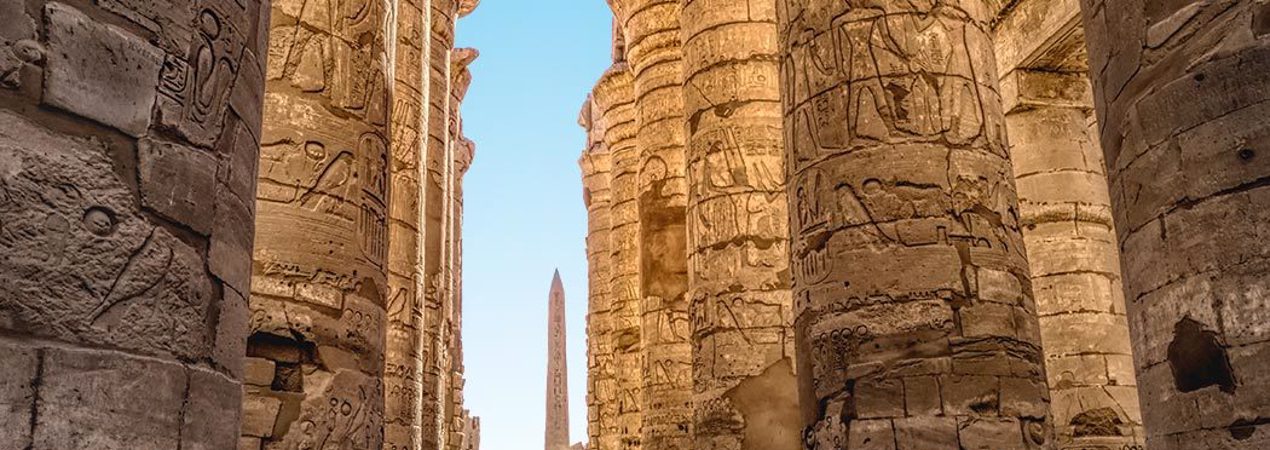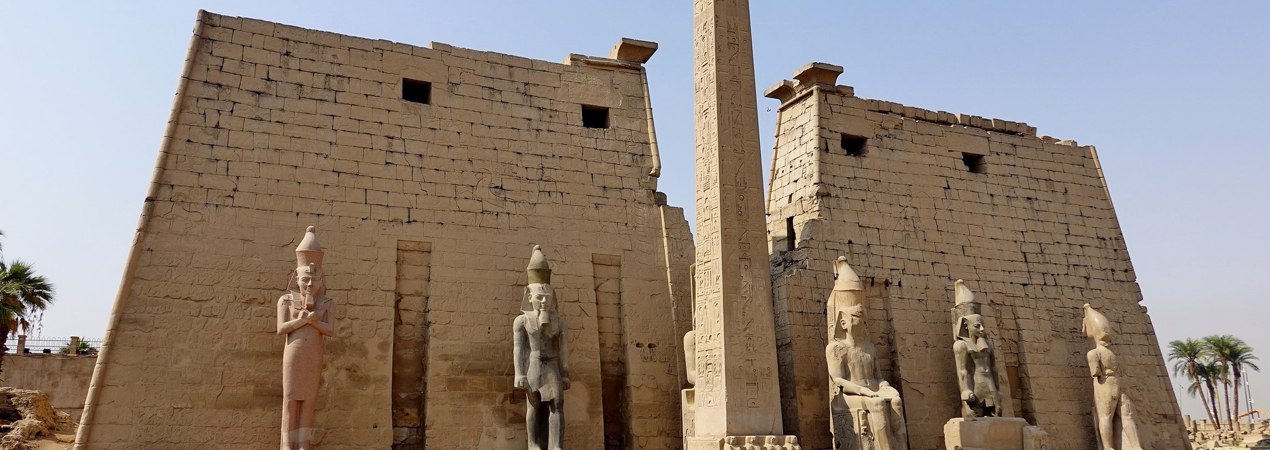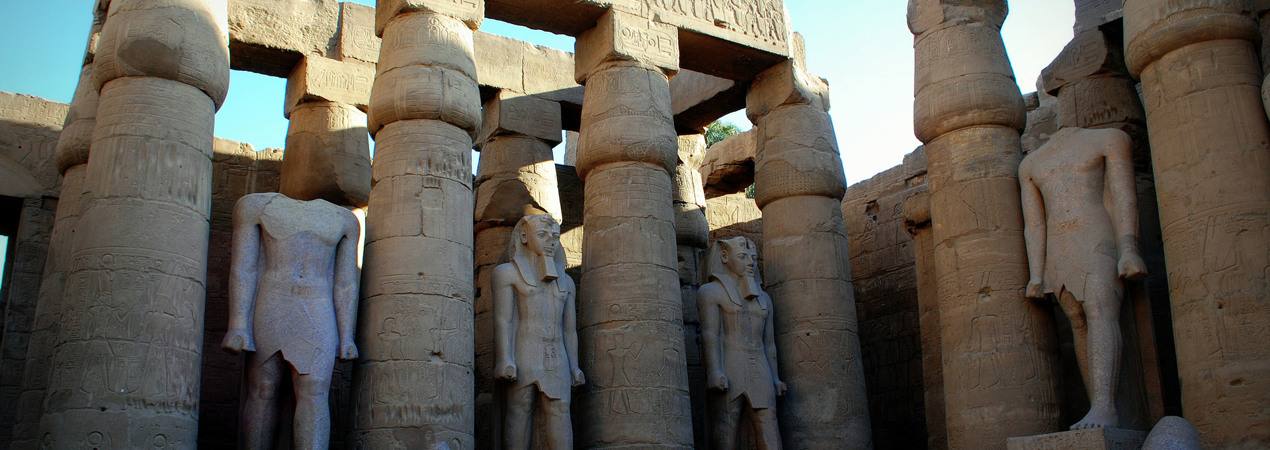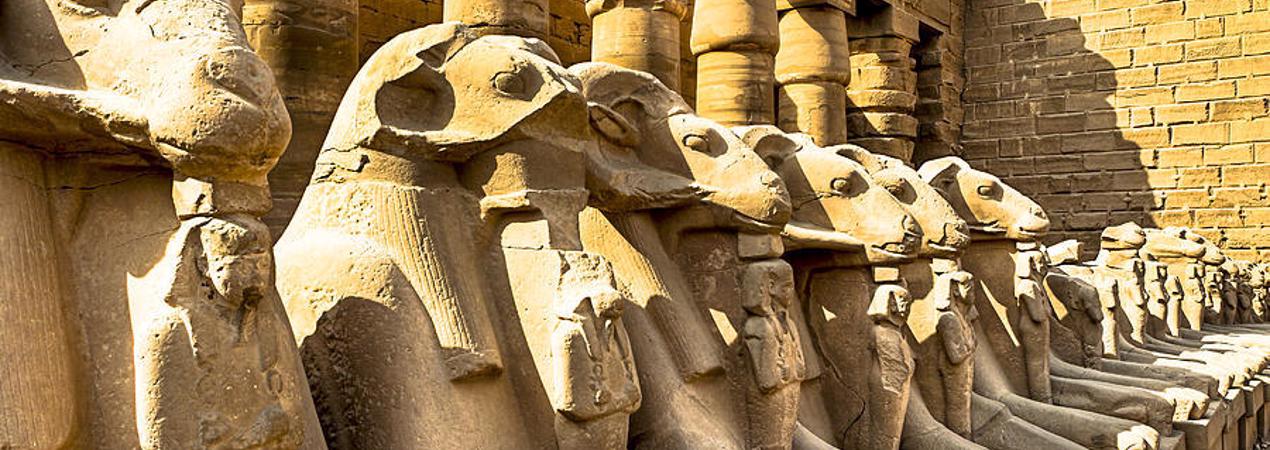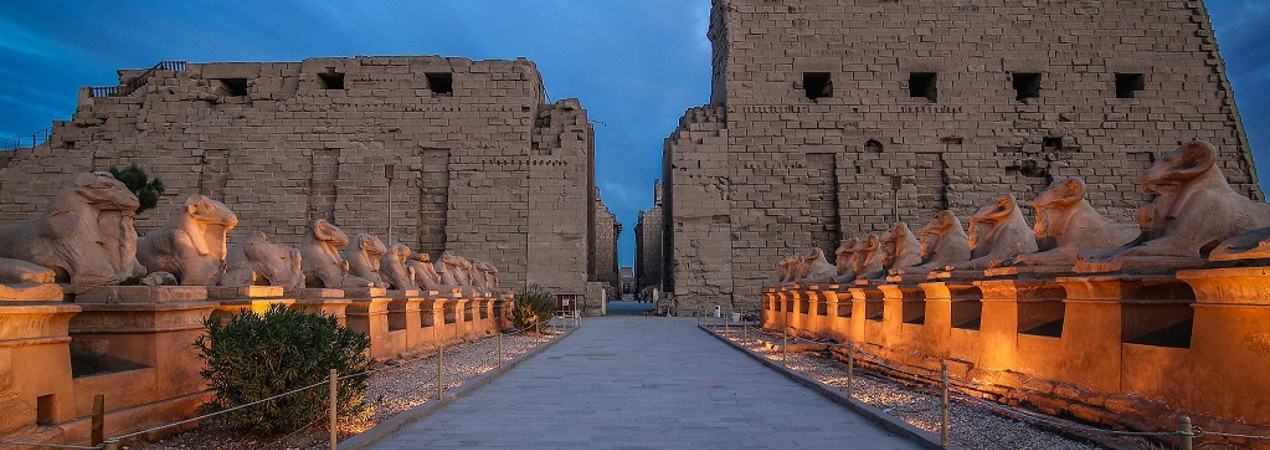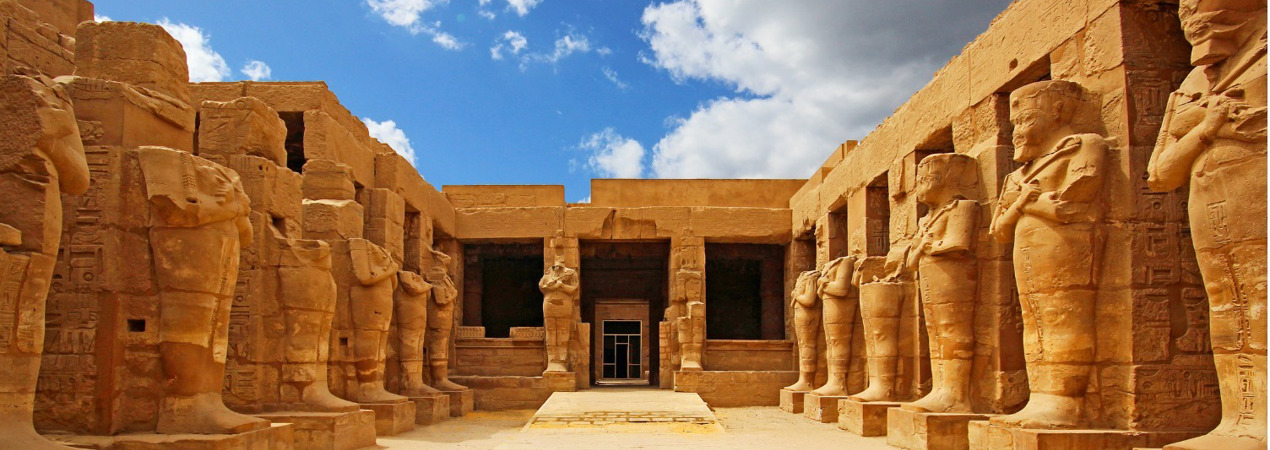Unlike the West Bank, which was always the main area for cemeteries and mortuary temples, the East Bank represented the main settlement of the living throughout the millennia, It is centred on the twin foci of the Temple of Luxor and the Temple of Karnak.
Luxor East Bank
Just book now! Get your spot before it's too late.
From $ 35
Overview
Departure Time
Complementaries
Small bottle of Mineral Water (600 ML)
Included
Pick up services from your hotel & return
All transfers by a private air-conditioned vehicle
Private English-speaking Egyptology guide
Entrance fees to all the mentioned sites
All taxes & service charge
Excluded
Any extras not mentioned in the itinerary
What To Expet?
The East Bank of Luxor refers to the central part of Luxor township, centred on the twin foci of the Temple of Luxor and the Temple of Karnak. Unlike the West Bank, which was always the main area for cemeteries and mortuary temples, the East Bank represented the main settlement of the living throughout the millennia - a role that has hardly changed. The vast majority of hotels and tourist facilities are to be found in the East Bank.
Our SPT Tours certificated tour guide will meet you at your Accommodate Hotel Lobby / Cruise (Time can be Customized) and will give you a brief for our tour, After a Short Brief the tour will begin
The Karnak temple complex at Luxor developed over more than 1,000 years, principally between the Twelfth and Twentieth Dynasties. It was, at its peak, the largest and most important religious complex in ancient Egypt. The most significant structure, and the largest religious building ever built, is the Temple of Amun-Ra, considered to be where that god lived on earth with his wife, Mut, and son, Khonsu, who also have temples at the site, The Karnak Temple is a massive temple complex to which dozens of pharaohs added their own constructions, The immense size of the complex, as well as its various architectural, artistic, and linguistic details make it an invaluable historical site and resource for understanding the evolution of ancient Egypt
Luxor Temple was the largest and most significant religious center in ancient Egypt. In what was then Thebes, Luxor Temple was “the place of the First Occasion,” where the god Amon experienced rebirth during the pharaoh’s annually reenacted coronation ceremony, Today, remains of this vast complex include the colossal Great Colonnade Hall, almost 61 meters long, with 28 twenty-one-foot-high columns, its decoration largely undertaken by Tutankhamun
After Visiting all the mentioned Sightseeing, our tour guide will accompanying you to your hotel / Cruise.
your tour review will help us to improve our services and it will be very appreciated.
